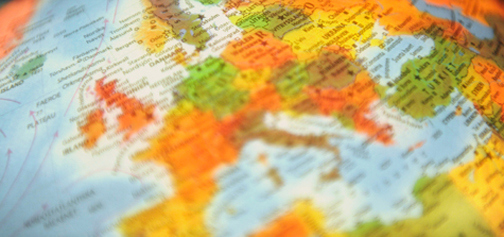
The Faroe Islands are a nation of approximately 50,000 descendents of Norwegian and Celtic settlers, a self-governing territory with its own democratically elected government, encompassed by the external sovereignty of the Kingdom of Denmark.
Though the self-government of the Faroe Islands is mainly developed in the internal sense, they also exercise a great degree of foreign policy. The best example is the fact that they chose to remain outside the European Union (then the EEC), when Denmark chose to enter as a member state. The Faroes Islands autonomy in their foreign relations is provided by a treaty between the Faroe Islands and Denmark which is enacted by the Act on the Concluding of Agreements under International Law by the Government of the Faroes.
The Faroe Islands have negotiated a fisheries agreement and a free trade agreement with the EU. At present they are in a process of negotiations with the EU to widen the scope of cooperation to the so called four freedoms – the free movement of goods, services, capital and persons – as well as other areas of cooperation, such as research, education and civil aviation.
On 1 November 2006, the Faroe Islands entered into a special economic treaty with Iceland, the Hoyvík Agreement, which established a single economic area encompassing both countries where any discrimination regarding goods, services, capital and persons is prohibited.
In addition to the EU and Iceland, the Faroe Islands have entered into regional free trade agreements with Norway and Switzerland as well as a Most-Favoured-Nation Treatment Agreement with the Russian Federation. The Faroe Islands are in principle a free trader and therefore seeking the liberalisation of trade with countries worldwide.
The Faroe Islands are in their own name a full member of the North Atlantic Marine Mammal Commission (NAMMCO), and an associated member of the International Maritime Organisation (IMO). They take active part in the Regional Fisheries Management Organisations NAFO, NASCO and NEAFC in conjunction with Greenland, while Denmark is represented in these RFMO’s by the EU. The Faroe Islands have also entered into fisheries agreements with Greenland, Iceland, Norway and the Russian Federation.
The Faroe Islands participate actively in the multilateral Nordic Cooperation established by the Helsinki Treaty. This treaty has inter alia established close cultural cooperation among the Nordic Countries, established a common labour market, abolished passport control as well as providing for close cooperation regarding social services and access to schools and universities.
Faroese Representations are established in Brussels, Copenhagen, London and in Reykjavík. The Representations in Brussels, London and Reykjavík are established in cooperation with the Danish Ministry of Foreign Affairs, thus granting diplomatic status to the Representatives.
